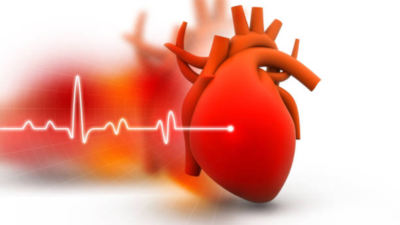
Heart disease is still the #1 killer in the U.S., claiming more lives each year. In 2022 alone, nearly a million Americans lost their lives to cardiovascular disease, a massive number that hits about one person every 34 seconds. Scary, right? What’s worse: almost half of all American adults already have some form of cardiovascular disease, whether they know it or not.Multiple risk factors like high blood pressure, high cholesterol, diabetes, smoking, and plain old genetics can sneak up on anyone. High blood pressure and cholesterol especially keep creeping higher, and estimates say that by 2050, more than 180 million Americans will have hypertension and obesity, with diabetes cases also soaring.Recently, Dr Alo, a US cardiologist took to Instagram to share two blood tests that according to him can detect heart disease risk decades earlier.
Cholesterol: The good, the bad, and the confusing
When you get a “cholesterol check,” your doctor probably looks at your total cholesterol, LDL (“bad” cholesterol), HDL (“good” cholesterol), and triglycerides. For years, LDL was seen as the main villain, believed to clog up arteries and cause heart attacks or strokes. Dr Alo warns of LDL levels above 60mg/dL. “The higher above 60, the faster it takes to get things worse,” warns the doctor.LDL cholesterol, often called “bad cholesterol,” is well known for its role in raising the risk of heart disease and stroke if it’s too high. Most doctors recommend keeping LDL levels below 100mg/dL for generally healthy adults, if you have heart disease, your target is below 70mg/dL, as per the American Heart Association. A meta-analysis in JAMA Cardiology found that pushing LDL cholesterol below the old “safe” cutoff of 70 mg/dL isn’t just okay, it’s actually really good for your heart.Researchers looked at a huge group of patients with heart disease whose LDL levels averaged 70 or lower. For every 39 mg/dL drop in LDL, their risk of heart attacks, strokes, and other cardiovascular events went down by about 20%. To put that in perspective, if someone’s LDL dropped from 70 down to around 31, their odds of having a serious heart event were 20% lower. That’s a big deal.What’s more, it didn’t matter how people lowered their LDL. Whether through statins (which reduce production in the liver), ezetimibe (which blocks absorption in the gut), or newer injectable PCSK9 inhibitors (which help the liver clear LDL from the blood), the benefits were the same.And here’s the kicker, there were no added risks even when LDL was driven super low, as low as 20 mg/dL. No spike in diabetes, liver issues, cancer, or bleeding strokes. Bottom line: lower really is better when it comes to LDL.Also, “good” cholesterol (HDL) isn’t always protective, especially across different race and ethnic groups, and higher HDL levels don’t mean lower heart disease risk for everyone. So, while it’s important, the regular cholesterol check might not tell the whole story.
ApoB: The undercover predictor
Here’s where apolipoprotein B (ApoB) enters the chat. Every “bad cholesterol” particle (LDL, VLDL, IDL) carries one molecule of ApoB. This means the ApoB blood test actually counts the number of these dangerous cholesterol particles, offering a clearer picture of just how clogged your arteries could get even if your regular LDL looks normal.Recent research from US experts shows the standard cholesterol panel can miss people who look “fine” on paper but actually have a hidden, high-risk profile based on their ApoB. In fact, some doctors now believe ApoB is the best single marker for cholesterol-related heart disease risk, beating out LDL alone.
Why catching this early matters
Heart disease takes decades to build up before it causes symptoms, says Dr Alo. If you want to sidestep a heart attack or worse down the line, the secret weapon is catching warning signs early, sometimes in your 20s, 30s, or 40s. The earlier you know if you’re at risk, the sooner you can change your diet, get moving, or start meds to stack the odds in your favor.Disclaimer: This article summarizes general information and insights from a US cardiologist regarding elevated LDL cholesterol levels (above 60 mg/dL) and the potential benefits of early blood tests. It is not intended as medical advice. Individual risk factors vary, and medical guidance may differ based on personal health history. Always consult a qualified healthcare professional before making any decisions about testing, treatment, or lifestyle changes related to heart health.






